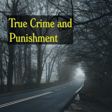
The West Memphis Three, part 3
Let's start with an apology. No excuses, just an apology. The lateness of this episode is entirely my fault. Essentially, I thought I'd posted this in June, and I hadn't. Please ignore the "we'll be back after the summer lol" at the end of this episode. Now that Siera is back, consistency will be through the roof, 'cause she's the responsible one here. Once again, I apologize for not posting this months ago. My "post it , run away, and don't look back" tactic works much better when I actually, you know, post the episode. --Kayley
On May 6, 1993, three eight-year old boys were found murdered in a water-filled ditch in Robin Hood Hill in West Memphis, Arkansas. The town of West Memphis is terrified that someone who could do this is on the loose. As they begin their investigation, police get hung up on one possibility: a satanic cult was responsible.
In part three of this three part series, Kayley walks us through the trial and appeals process and how two documentaries caused public outrage once again--only this time, the public's outrage helped the West Memphis Three finally get a retrial.
Sources:
Devil's Knot: The True Story of the West Memphis Three—Book by Mara Leveritt
https://www.gq.com/story/west-memphis-three-trial-story-sean-flynn-gq-december-2011
https://www.eonline.com/news/1135012/inside-the-unknown-story-of-the-forgotten-west-memphis-three
https://www.cnn.com/2022/06/23/us/west-memphis-three-dna-court-hearing/index.html
https://www.britannica.com/event/West-Memphis-Three
https://encyclopediaofarkansas.net/entries/west-memphis-three-3039/
